Top 8 ERP Software Vendors
In today’s age of digital transformation, the top ERP vendors are:
- Microsoft
- SAP
- Oracle (NetSuite)
- Sage (Intacct)
- Epicor
- Infor
- Acumatica
- Odoo
This is because more and more businesses are taking advantage of the benefits of ERP software. In fact, most businesses can’t afford to pass up on the automation, integration, and efficiencies offered by a fully integrated business management platform.
What is ERP?
Enterprise Resource Planning (ERP) systems are an integrated suite of business applications designed to automate your organization’s back-office functions, including financials, sales, and operations. Financials handle accounting functions such as accounts payable, accounts receivable, general ledger, and fixed asset management. Operations include sales orders and contact management.
Read More: What is ERP and How Do ERP Systems Work?
Why Do I Need An ERP Vendor?
Since ERP software is built to help a company succeed, there are plenty of top ERP vendors that can help ensure your investment pays dividends. As of 2020, the ERP software market was valued at $43.72 billion. This number was projected to grow up to $117.09 billion by 2030; growing at a rate of 10.0% each year. Due to the size of the market, there is an overwhelming number of ERP vendors that can act as experts in your industry.
Which ERP vendors will work best for you? It might be easy to look at a list of the world’s largest software companies by revenue and market capitalization, but that doesn’t tell you which ERP vendor would work for your unique needs.
Whether you are a mom-and-pop store ready to take your business to the next level or a large business with multiple brick-and-mortar locations, many top software developers have a large network of specialized value-added resellers (VARs) that can help you through the sale, setup, and future support. If you follow the dos and don’ts of selecting an ERP vendor, you’ll be prepared when deciding between your top few choices.
In no particular order, we’ve compiled our list of the top ERP vendors. These companies were chosen due to their market presence, the number of available solutions they offer, and their appeal to a multitude of users and industries.
Top ERP Vendor: Microsoft
Microsoft has been a leader in the ERP software market for many years through its Dynamics product offerings. These ERP solutions provided a fully integrated tool for financials, supply chain, operations, reporting, manufacturing, and human resource activities.
Some of the most popular ERP solutions of the past 20 years have been from Microsoft, including Dynamics NAV and Dynamics AX. Prior to their launch with Microsoft in 2005, the Dynamics products were run by independent companies Solomon and Axapta before being acquired by Great Plains Software, which Microsoft later purchased in 2001 to create Dynamics GP.
Today, Microsoft Dynamics GP is still one of the leading on-premise solutions Microsoft offers. The others have transitioned into Dynamics 365 Business Central and Dynamics 365 Finance and Operations. Many of Microsoft’s offerings now try to become industry-focused or provide an app-based approach that lets you customize your solution to fit your needs. Their yearly release waves highlight plans and key milestones that allow software owners and users to see what positive changes are arriving for the systems months in advance.
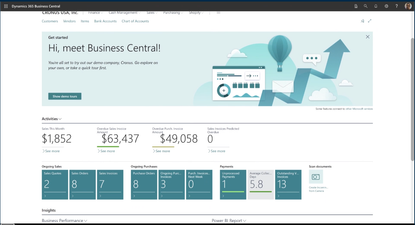
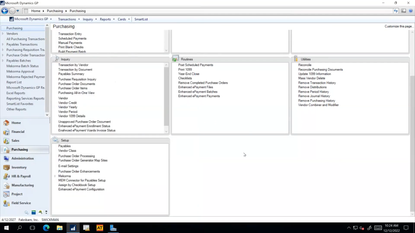
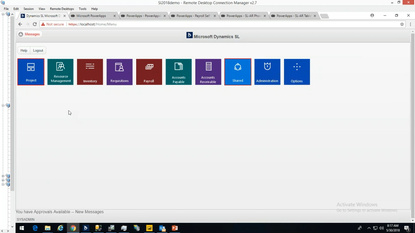
Top ERP Vendor: SAP
SAP has been a leader in business applications since the launch of its first ERP system in 1972. Today, the company has over 425,000 customers in over 180 countries and employs over 100,000 people worldwide. They offer dozens of ERP solutions for seemingly every size of business and every type of industry.
ERP solutions from SAP give your business access to tools designed to simplify your business processes and gain an advantage over your competitors. This is provided through integrated financial management, supply chain management, and CRM tools. Most SAP ERP software is scalable, allowing you to adjust the package to your unique needs. For small businesses, SAP offers their Business One, while SAP S/4HANA is built for enterprise companies requiring more advanced features.
Regardless of the size of your business, SAP has a worldwide ecosystem of over 21,000 partners that can help you buy, build, implement, service, support and run the SAP solution that best fits your unique needs. For small and midsize (SME) businesses that have concerns working with such a large company, SAP provides local partners that can help you face-to-face and handle local regulations.
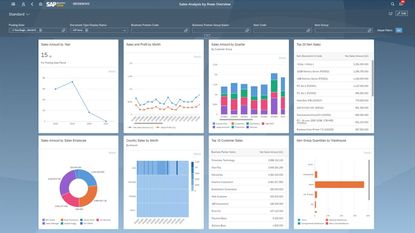
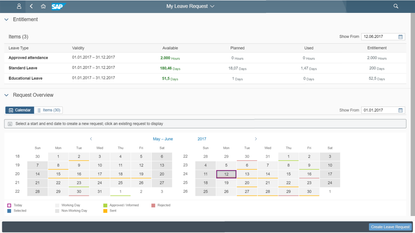
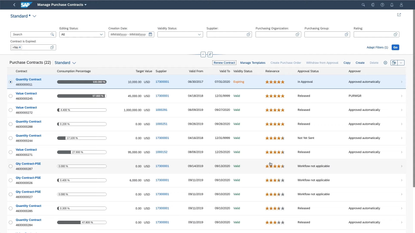
Top ERP Vendor: Oracle (NetSuite)
Oracle is one of the largest software companies in the world, selling database software and technology, cloud-engineered systems, and enterprise software products. They are most known for their own brands of enterprise systems that handle ERP, human capital management (HCM), CRM, and supply chain management (SCM). Oracle Cloud Applications are built on machine learning that helps enable fast innovation with a modern UX and customer-first approach.
After a number of acquisitions in the early 2000s, Oracle became a leading ERP company with its Oracle Fusion and Oracle E-Business Suite product lines. Oracle ERP Cloud was released in 2012 and has quickly become one of the most preferred Oracle solutions. And in 2016, Oracle acquired NetSuite, one of the best cloud ERP software options on the market.
In acquiring JD Edwards and PeopleSoft in the mid-2000s, Oracle pivoted the JD Edwards EnterpriseOne solution (also referred to as JDE) to meet the needs of the medium-sized company that was not currently covered by their E-Business Suite.
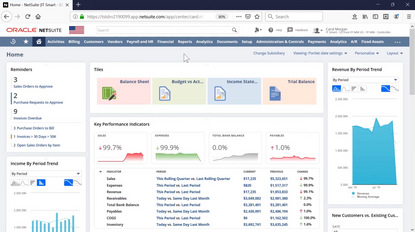
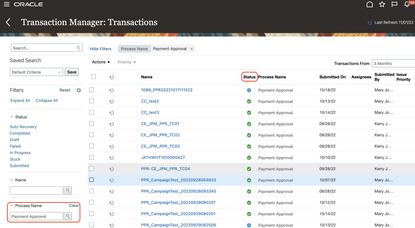
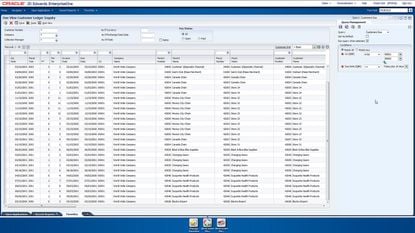
Top ERP Vendor: Sage (Intacct)
Sage Group is the third-largest supplier of enterprise resource planning software but the largest supplier to small businesses. The founders started the company in 1981 with a focus on providing estimating and accounting software tools to small businesses.
While Sage does offer ERP software for larger businesses, it still has numerous offerings for small to midsize companies. Its acquisition of Sage Intacct in 2017 allowed it to maintain a strong financial management software package while continuing to improve its enterprise solutions. These ERP options are highly modular and customizable, allowing users to streamline their processes.
On top of strong accounting and financial management, all Sage ERP solutions can offer features to assist with inventory, manufacturing, business intelligence, and distribution needs. They also have a strong foot in the Construction industry; Sage offers a “Contractor” and “Construction and Real Estate” version of their Sage 100 and Sage 300 ERP options, respectively.
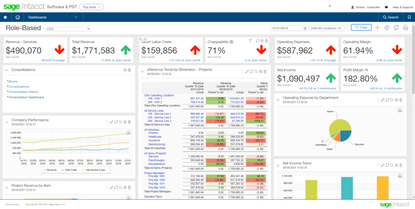
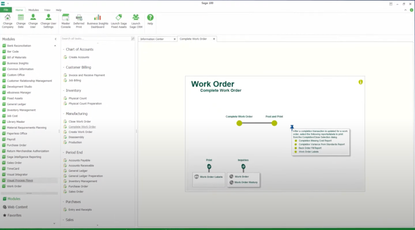
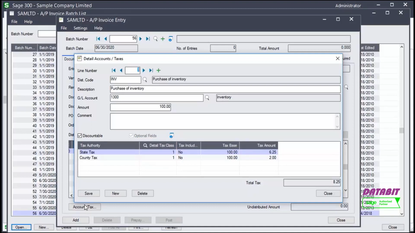
Top ERP Vendor: Epicor
Epicor has been a leader in ERP systems for over 25 years, with a primary focus on manufacturing, distribution, retail, and services industries. Like many enterprise software companies, they originated in financial accounting before beginning to integrate CRM tools into their packages. Following acquisitions in the late 90s and early 2000s, Epicor transitioned into expanding its manufacturing capabilities. By 2005, Epicor Vantage 8.0 was released as their first manufacturing-focused option.
Since 2006, Epicor has been a world leader in ERP software. All of their solutions provide a modular architecture, letting you customize which features are required and implement them without sacrificing the performance quality.
Epicor has been making a strong push towards the utilization of the internet of things (IoT), mobile solutions (accessible via Apple iPhones and Android smartphones), and analytics and Big Data via integrated BI tools.
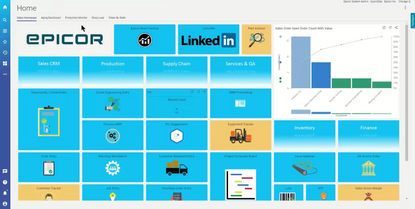
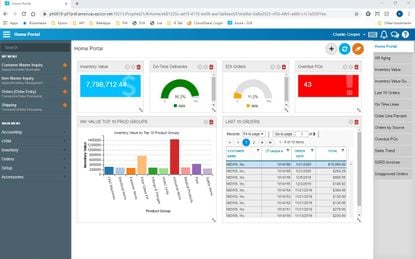
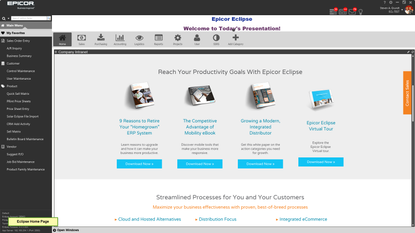
Top ERP Vendor: Infor
Infor has been a leader in cloud computing since 2010 when it began aggressively modernizing its product lines and providing solutions for virtually every industry. Today, its CloudSuite line of products includes over a dozen sub-industry options for manufacturing, distribution, field service, and consumer packaged goods (CPG).
Infor’s ability to provide ERP software for every industry is in part due to the number of acquisitions they’ve been a part of since their inception in 2002 as Agilsys and ultimate rebrand to Infor in 2004. Today, Infor provides ERP software to over 68,000 organizations worldwide. This is largely due to their large network of software partners. With over 2,100 ERP vendors selling their products in 47 countries, Infor is consistently a vendor that companies consider when changing ERP systems.
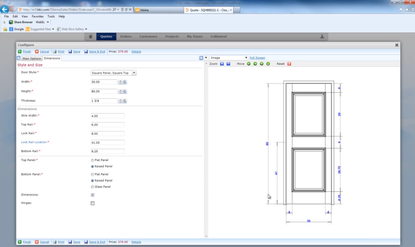
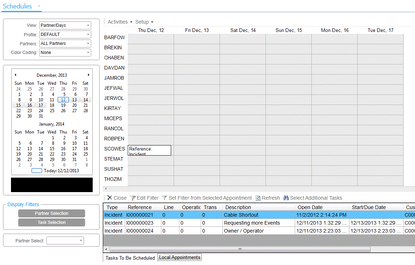
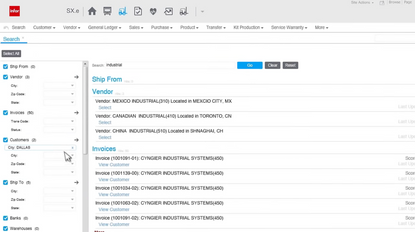
Top ERP Vendor: Acumatica
Acumatica is a relatively new player in the ERP space, being founded in 2008 to provide solutions to several industries, including construction, manufacturing, and distribution. Acumatica Cloud ERP features an open architecture that supports rapid integrations with third-party systems. It features a modular architecture, allowing businesses to only purchase required modules.
Today, Acumatica has over 10,000 customers and 600 employees, making it one of the fastest-growing ERP vendors on the market. It has a large partner channel, including over 350 VARs, for personalized implementation and support.
Top ERP Vendor: Odoo
Founded in 2005, Odoo has emerged as a leader in the small business ERP market. Similar to Acumatica, Odoo is open-source and modular, making it a solid option for new businesses that only require a couple of features to start out. The system offers 30 main applications that cover core ERP functions like CRM, accounting, and inventory.
Today, Odoo has over 12 million users. This is partly due to its free offering, which allows startups to choose one app to use for free. Odoo’s open-source nature also means businesses can benefit from a large community of developers, ensuring the system remains constantly updated.
Important Questions to Ask ERP Vendors
An ERP purchase is one of your company’s most substantial and important IT investments. Choosing the right partner is critical to ensuring you meet your targeted return on investment. Some important questions to ask vendors include:
Who Works for Your Company and What Do They Do?
Asking about the company’s employee makeup goes a long way toward understanding the company itself. Has the vendor brought in experts in your field to work as analysts? Many top vendors have. You’re potentially purchasing access to this company’s support services. How well-staffed is technical support? What’s their expertise and the length of their tenure? Finding out how long key employees have been with the company can tell you a lot about your potential business partner’s stability and the health of their organization.
What Is the Extent of Your Service Offerings?
It’s critical to find out if a vendor will meet your needs now and in the future. Consider the breadth and quality of services, such as custom programming and support for related products. As your needs evolve, you may require access to an area you don’t currently have. Understanding a provider’s capabilities to scale with your evolving needs is critical.
What Referrals Can You Share?
Ask for both a referral from a long-term customer and a new one. They’ll share very different insights into partnering with the vendor. You need to know both where a company has been and where it is now. A newer customer can share information on your immediate considerations most clearly. They will be a great source of information on the implementation process you contemplate undertaking. The longer-term customer, though, will share equally important information on partnering with this company for the long haul. What’s the overall value they’ve seen? What do they think of the support services? How has the provider adapted to their evolving needs?
What Do You Think We Can Do Better?
Allowing providers to speak freely about inadequacies they perceive really amounts to maximizing your ability to identify growth opportunities. In their business, they are exposed to what companies are doing with technology and what’s working. Providing them the opportunity to speak candidly about how this relates to your firm is a business intelligence opportunity for you. It’s also a chance to identify which providers have the most insightful suggestions to offer.
Ask for Access to the User Community
Many ERP vendors and software developers support web-based user communities. Very often, these are password-protected user forums for existing customers only. The beauty of these types of support forums is that they provide a real, unvarnished look at the truth of what it means to be a customer of the provider or user of a specific program.
What Is Your Relationship With the Developer?
Most ERP vendors don’t develop ERP software. Rather, they are providers of the software who are specifically authorized to sell, implement, and support the software.
Many developers support different levels of partnership for software sellers of their solutions. They may distinguish between their partners on the basis of completion of certifications, areas of specialization, volume of sales, or other factors. An ERP software vendor’s partnership level often also affects the pricing they are able to provide. When considering an ERP vendor, taking time to understand the relationship between the vendor and the developer can provide valuable insights.











